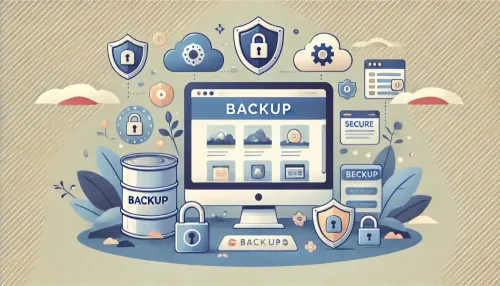In today's digital age, creating a blog has become an essential way to share your thoughts, ideas, and expertise with the world. However, one crucial aspect that often gets overlooked is selecting the right hosting provider for your blog. The hosting provider you choose can significantly impact the performance, security, and overall success of your blog. In this comprehensive guide, we'll delve into the intricacies of choosing a hosting provider that aligns perfectly with your blog's needs.
Understanding Hosting: A Brief Overview
Before we dive into the intricacies of choosing a hosting provider, let's take a moment to understand what hosting is all about. Simply put, web hosting involves renting space on a server to store your website's files and make them accessible on the internet. Hosting providers offer various services, each catering to different needs and requirements.
What to Consider When Choosing a Hosting Provider
Selecting the right hosting provider requires careful consideration and research. Here are some key factors to keep in mind:
Type of Hosting: Hosting providers offer different types of hosting, including shared hosting, VPS (Virtual Private Server) hosting, dedicated hosting, and cloud hosting. Each type comes with its own set of advantages and disadvantages. Consider the scale of your blog and the resources you need before deciding on a hosting type.
Performance and Speed: Slow-loading websites can drive visitors away. Look for hosting providers that offer solid performance, including fast loading times and high uptime guarantees. The hosting provider's server infrastructure plays a significant role in this aspect.
Scalability: As your blog grows, your hosting needs might change. Choose a hosting provider that allows for easy scalability, enabling you to upgrade your resources seamlessly as your traffic increases.
Security Features: Website security is paramount. Opt for a hosting provider that offers features like SSL certificates, firewalls, regular backups, and malware scanning to protect your blog and its visitors.
Customer Support: Technical glitches and issues can arise at any time. A reliable hosting provider should offer excellent customer support, preferably 24/7 through various channels like live chat, email, or phone.
User-Friendly Control Panel: A user-friendly control panel, such as cPanel or Plesk, can make managing your website easier, especially if you're not tech-savvy.
Location of Servers: The physical location of the server can impact your website's loading speed, particularly for geographically targeted audiences. Choose a hosting provider with servers in regions relevant to your target audience.
Top Hosting Providers to Consider
With numerous hosting providers available, here are a few reputable ones to consider:
Bluehost: Known for its user-friendly interface, Bluehost offers various hosting types and a one-click WordPress installation, making it an excellent choice for bloggers.
SiteGround: Renowned for its exceptional customer support and advanced security features, SiteGround is a preferred option for both beginners and experienced bloggers.
HostGator: With a range of hosting plans and a reputation for reliability, HostGator is a popular choice that caters to blogs of all sizes.
A2 Hosting: Focused on speed and performance, A2 Hosting boasts "Turbo Servers" for faster loading times, making it ideal for bloggers who prioritize page speed.WP Engine: If you're using WordPress, WP Engine's managed WordPress hosting offers optimized performance, automatic updates, and robust security features.
The Impact of Hosting Choices on Your Blog
Your hosting provider can significantly impact your blog's success in various ways:
User Experience: A slow-loading blog can frustrate visitors, leading to higher bounce rates. A reliable hosting provider ensures a seamless browsing experience, retaining visitors and encouraging them to explore your content.
SEO Performance: Search engines consider website speed as a ranking factor. Fast-loading blogs are more likely to rank higher in search engine results, driving organic traffic.
Security and Trust: A secure hosting environment safeguards your blog from cyber threats, ensuring the safety of your data and your visitors' information. A secure blog fosters trust among your audience.
Scalability: As your blog gains traction, you might need more resources. A hosting provider that allows easy scalability ensures your blog can handle increased traffic without downtime or performance issues.
Downtime Impact: Poor hosting can result in frequent downtime, making your blog inaccessible. This not only harms user experience but can also affect your reputation and revenue.
Choosing a hosting provider for your blog is a critical decision that requires careful thought. The right provider can elevate your blog's performance, security, and user experience, while the wrong choice can lead to frustration and missed opportunities.
Consider your blog's current and future needs, assess the hosting provider's features, and research customer reviews to make an informed decision. Remember, your hosting provider forms the foundation of your online presence, so choose wisely to set your blog up for success.





